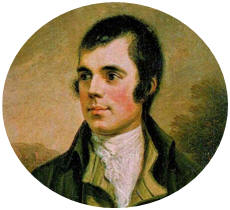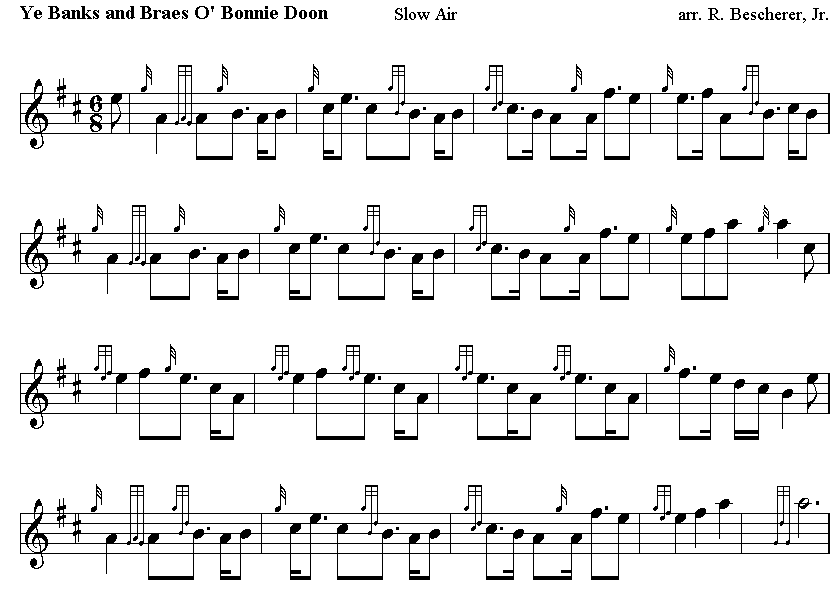 |
|||||

Best viewed in
|
Burns wrote, Ye Banks and Braes O' Bonnie Doon around 1783. The Doon of the poem is the river Doon which flows from Loch Doon in Carrick, Fife to the Firth of Clyde. On the way, it passes by close to Burns' birthplace in Alloway, Ayrshire. Burns and his family left the house in Alloway in 1766 when he was seven, so it is doubtful that the poem is in any way an autobiographical one. Legend has it, according to the Complete Works of Robert Burns which was published in 1855, that the poem is about the beautiful Miss Kennedy from Dalgarrock who had her heart broken by a man named McDoual. Nevertheless, if you read it carefully you can feel the heartbreak and the longing for another. The poem is about the heartache and pain that love can cause, and is told from the perspective of a jilted or unrequited lover. The melody to this is purported to have been written in 1788 by a Charles Miller, who expressed a desire to compose "an authentic Scots air," and was advised by a friend, partly in jest to "keep to the black keys of the harpsichord and maintain some kind of rhythm." It first appeared in the Scots Musical Museum (1792 volume). A copy was given to Neil Gow, who printed it in Strathspey Reels (1788) as The Caledonian Hunts Delight - 4 years before it appeared with Burns' words in the Scots Musical Museum.
Lyrics by Robert Burns
|
||||

